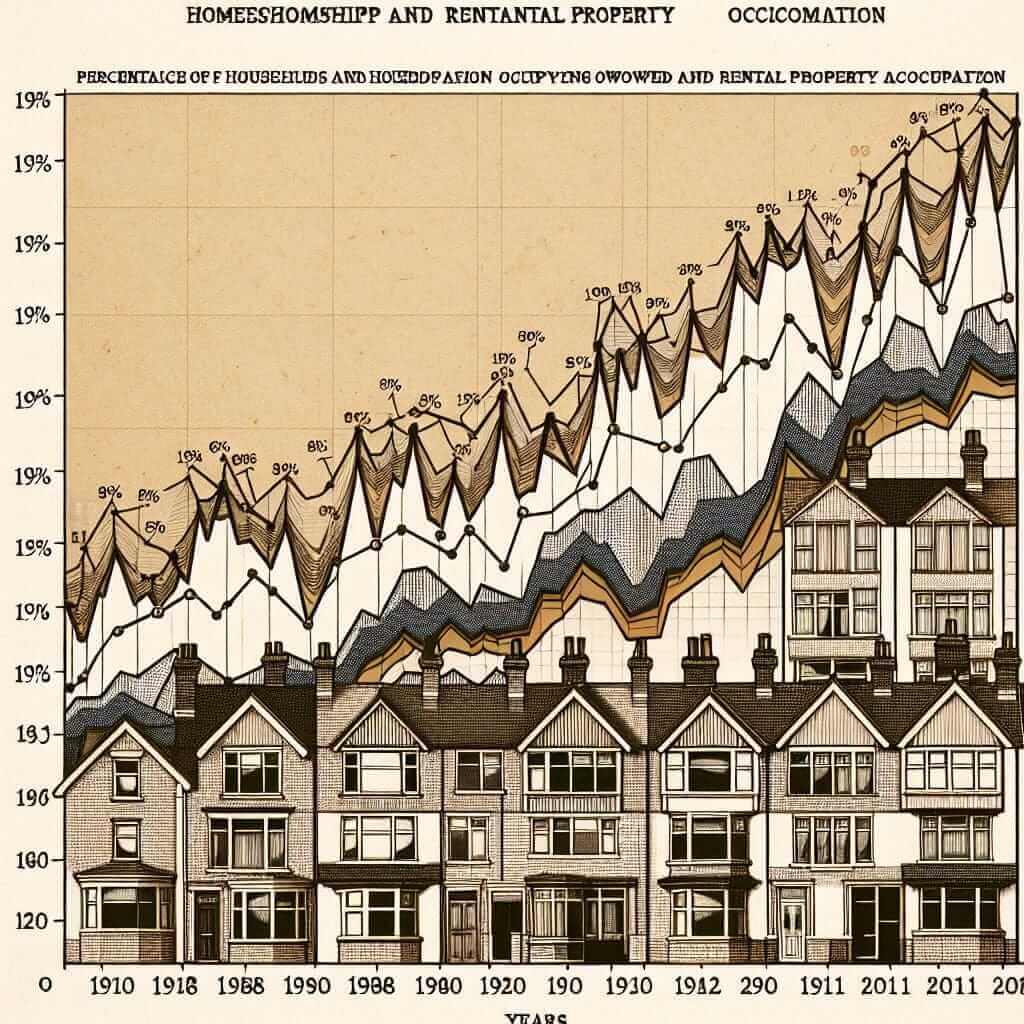For many IELTS test-takers, Writing Task 1 can feel like a daunting hurdle. Summarizing complex data accurately and effectively within a short time frame is challenging. But don’t worry! A strong start can set the tone for a high-scoring response.
This guide, crafted by an experienced IELTS instructor with over 20 years of experience, will provide you with a winning formula to start your IELTS Writing Task 1 confidently and effectively.
Understanding IELTS Writing Task 1
Before we dive into the specifics of starting your essay, it’s crucial to understand the task itself. In Writing Task 1 of the IELTS Academic module, you’ll be presented with a visual representation of information, such as:
- Line graphs: Showing trends over time.
- Bar charts: Comparing different categories.
- Pie charts: Illustrating proportions of a whole.
- Tables: Presenting data in rows and columns.
- Processes: Describing a sequence of stages.
- Maps: Showing changes in geographical layouts.
You’re expected to write a minimum of 150 words summarizing the key features and making comparisons where relevant. The key to success lies in presenting this information clearly, accurately, and with a good range of vocabulary and grammar.
Crafting Your Introduction: The First Impression Counts
A strong introduction is crucial for making a positive first impression on the examiner. It should be concise (around 2 sentences) and achieve two primary goals:
- Paraphrase the Task: Restate the visual information’s main idea in your own words.
- State the Overview: Briefly mention the most significant trend or feature that stands out to you.
Examples:
Task: The line graph shows the number of tourists visiting a particular city over a period of 10 years.
Introduction 1: The line graph provides information on the number of tourists visiting a specific city over a decade. Overall, tourist numbers increased significantly during this time.
Task: The bar chart compares the percentage of males and females employed in different sectors in the UK in 2015.
Introduction 2: The bar chart illustrates the proportion of men and women working in various industries in the UK in 2015. At a glance, it is clear that certain sectors had a more balanced gender distribution than others.
Moving Beyond the Introduction: Essential Tips
While the introduction is crucial, remember these points for the rest of your Writing Task 1 essay:
- Focus on Key Features: Don’t try to describe every single detail. Instead, select the most significant trends, changes, or comparisons.
- Use Linking Words: Transition smoothly between paragraphs and sentences using cohesive devices like “however,” “moreover,” “in contrast,” etc.
- Vary Your Language: Showcase your vocabulary range by using synonyms and avoiding repetition. For instance, instead of constantly using “increase,” incorporate words like “rise,” “climb,” or “surge.”
- Accuracy Matters: Pay close attention to dates, numbers, and units of measurement. Any inaccuracies will negatively impact your score.
- Proofread Carefully: Before submitting your response, allocate a few minutes for proofreading. Correct any spelling, grammar, or punctuation errors.
Example: Putting it All Together
Let’s look at a complete Writing Task 1 response, focusing on the introduction:
Task: The chart below shows the percentage of households in owned and rented accommodation in England and Wales between 1918 and 2011.

Response:
The line graph provides a breakdown of housing tenure in England and Wales from 1918 to 2011, showing the proportion of households living in owned and rented accommodation. Overall, the period witnessed a significant shift from renting to homeownership.
[Body paragraphs would follow, analyzing the main trends and supporting them with data from the graph.]
Achieve Your IELTS Writing Goals
Remember, starting your IELTS Writing Task 1 effectively is achievable with the right approach. By understanding the task requirements, crafting a clear and concise introduction, and focusing on key features, you’ll be well on your way to achieving your desired IELTS band score. Good luck!